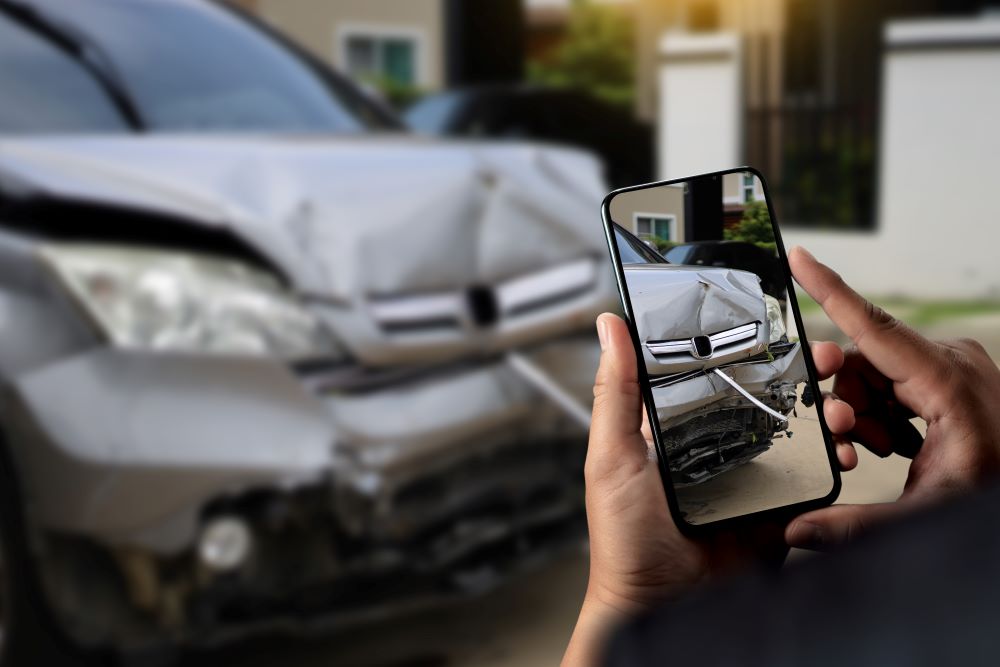When you’re involved in a traffic collision, collecting evidence is probably the last thing on your mind. While your priority should always be everyone’s safety, gathering evidence for your car accident claim is also important.
Whether you’re filing an insurance claim or a lawsuit against the negligent party, the right kinds of proof can help you seek fair compensation. In this post, we discuss everything you need to know about gathering evidence for your car accident claim, including why it’s important and what kind of evidence you should collect.
Why Is Evidence Collection Important?
Proving your accident case is difficult without solid evidence. While both parties sometimes agree on what happened in a traffic collision, your account will likely differ from the other driver’s, making it crucial should a dispute arise.
Specifically, gathering evidence is essential to the following:
Establishing Fault
North Carolina is an at-fault auto insurance state. That means when you have an accident, the driver who caused the crash is typically responsible for the resulting medical costs, lost wages, and other damages.
What’s more, the state’s strict contributory negligence rules could bar you from collecting any compensation if you were even slightly to blame. Proving fault is a crucial step in determining who pays for your losses.
Proving Losses
Saying you suffered injuries, property damage, or other losses in an accident is insufficient. Instead, you need to provide proof in the form of photos, bills, and other evidence.
Determining Compensation
After an accident, you can pursue compensation for economic and non-economic damages. Economic damages are the monetary costs of your crash, which you can show with financial documentation like bills, invoices, and receipts.
Non-economic damages are the less tangible consequences, such as pain and suffering, permanent disfigurement, and lowered quality of life. While non-economic damages are harder to quantify, potential evidence for your car accident claim includes testimony from friends, mental health diagnoses, and recovery journals.
What Evidence Should I Gather — and When?
Solid evidence is key to any successful personal injury claim. You can collect different types of evidence during the following stages:
At the Scene of the Accident
Immediately after a crash, move to a safe location away from traffic and call law enforcement. A police report serves as important evidence for your car accident claim. Exchange contact details and insurance information with the other driver, but avoid admitting fault. If anyone saw the collision, gather witness information as well.
Next, take photos and videos of the accident scene. Try to capture all the vehicles involved, your injuries, the surrounding area, and any road or weather conditions that may have contributed to the crash. Write down what happened while it’s fresh in your mind. This can help you and your attorney reconstruct the incident later.
While you can speak to your insurance company to report the incident, provide just the basic details. Don’t admit fault, agree to a recorded statement, or sign a written statement without consulting an accident attorney. If you do, the other side can use it as evidence against you.
After the Accident
Even if you feel fine immediately after an accident, seek a medical consultation — and follow through on any recommended treatment. Not only will this protect your health, but it can also provide valuable evidence for your car accident claim. Hold on to hospital bills, medical records, and pharmacy receipts as proof of your costs.
If your injury limits your ability to work, document this as well. Paystubs, direct deposit receipts, and tax returns can all show reduced income due to the accident. A recovery journal tracking your pain levels, work impairment, and medical appointments can also be useful.
After Hiring an Attorney
Some evidence is easier to collect with the help of a personal injury attorney. Your lawyer can track down surveillance footage from nearby businesses, interview witnesses, collect vehicle damage reports, and hire professional consultants to reconstruct the accident or testify to your medical condition.
How Long Do I Have To File a Car Accident Lawsuit?
In North Carolina, the deadline for filing a claim is generally three years after an accident. Evidence gathering takes place both before and after filing a lawsuit. An accident attorney can help you collect evidence and make sure you file before the statute of limitations runs out.
Need Help After a Car Accident in North Carolina?
Whether you need help gathering evidence for your car accident claim or have other questions about your legal rights, the team at Paynter Law can help. Contact us today to schedule a free consultation with an experienced car crash attorney.

